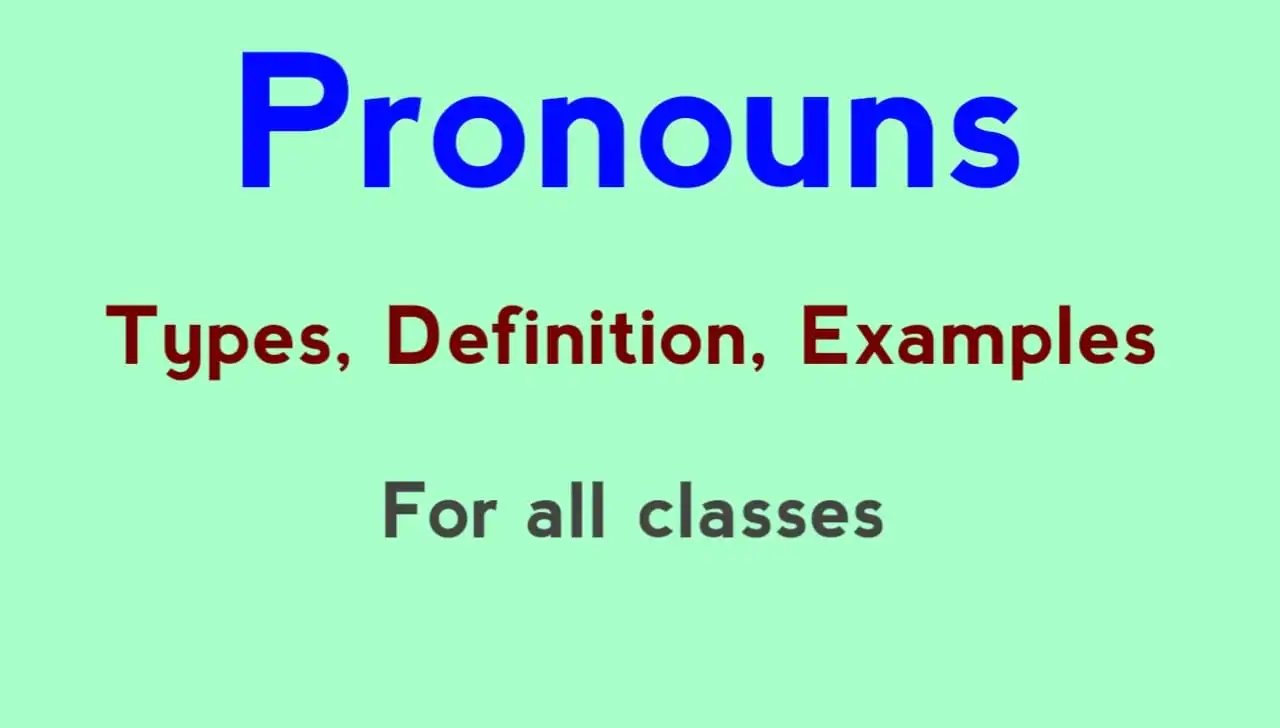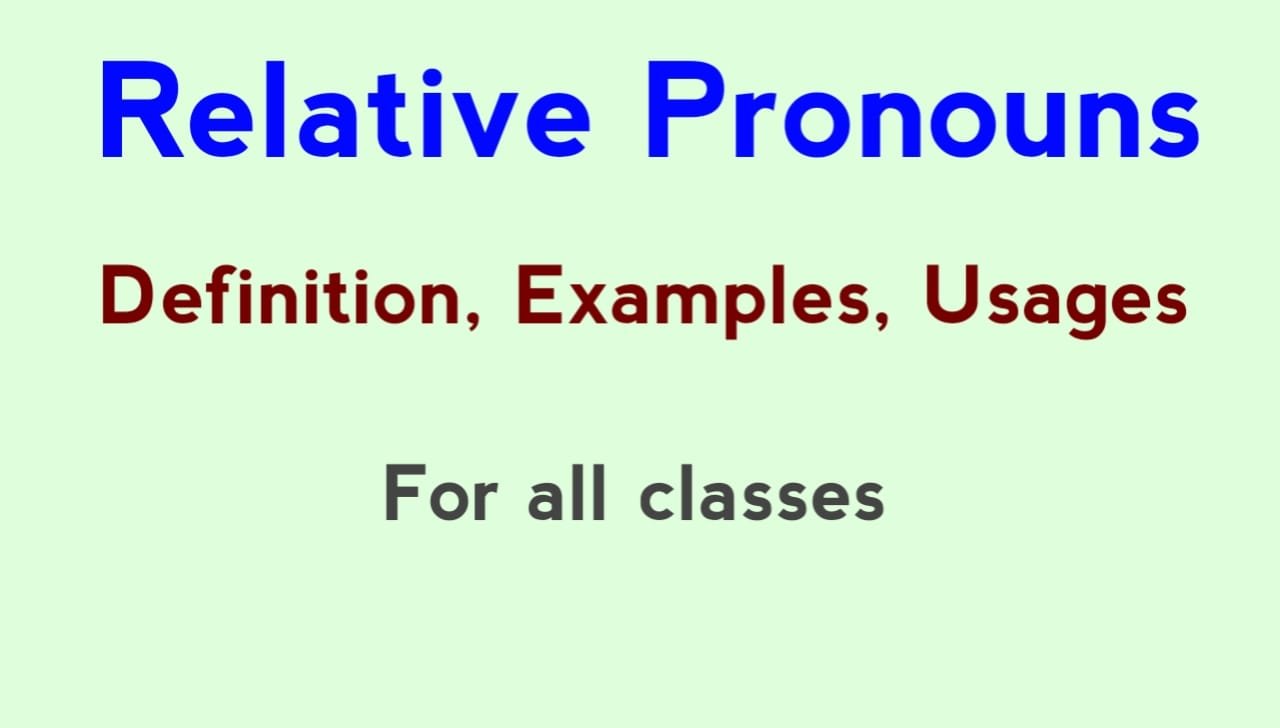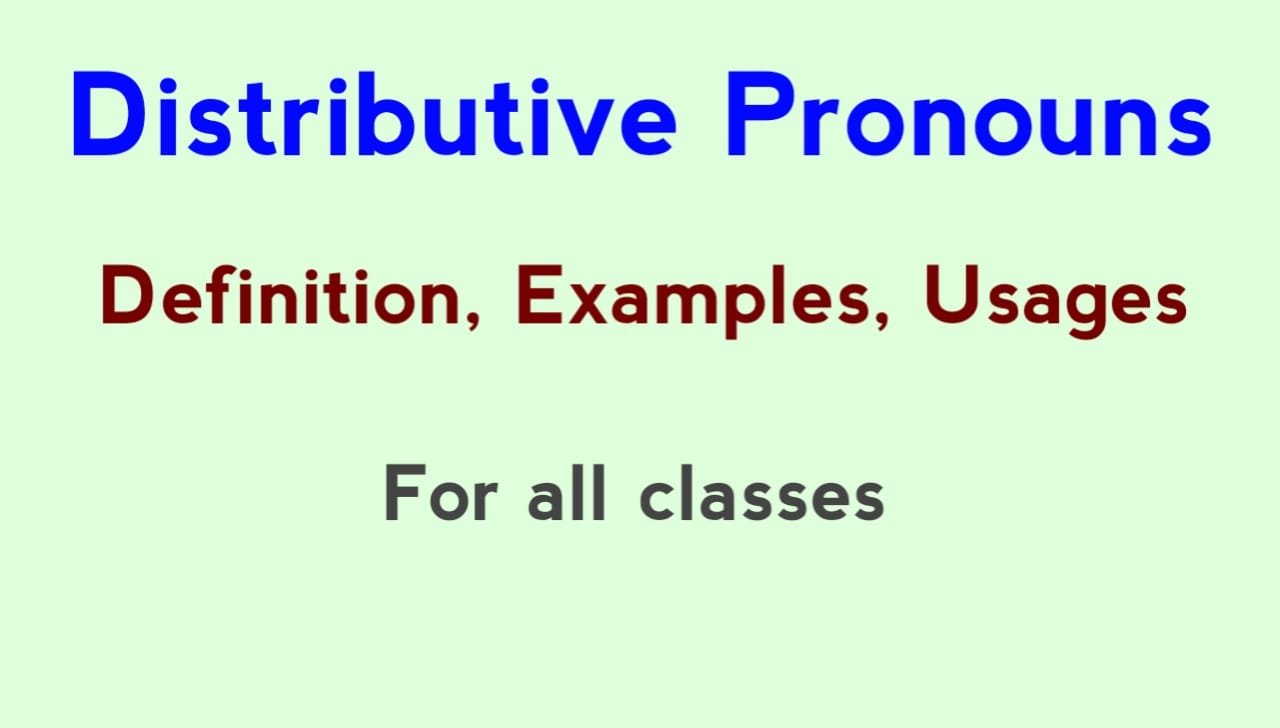Pronouns in English Grammar are perhaps the second part of speech in the English Language. Pronouns in English Grammar: Types, Definitions, and Examples have been discussed below. Some important usage of pronouns in English Grammar has also been discussed not only for the students but also for the examinees for upcoming competitive exams.
Definition of Pronouns in English Grammar
A pronoun is a word used instead of a noun or noun equivalent.
- Ranit likes to play.
- He likes to play football.
Here the pronoun he is used instead of the noun Ranit and saves it from being mentioned twice. Hence a pronoun is a substitute word and its chief use is to save the repetition of a noun.
Types of Pronouns
Pronouns may be divided into the following Nine classes.
(1) Personal Pronoun:
Pronouns that stand for persons and are called personal pronouns: I, We, You, He, She, They.
Personal Pronoun Examples in Sentences.
- I have done the work.
- We were playing football.
- You are a liar.
- She is singing a song.
- They are watching a movie.
(2) Possessive Pronoun:
The pronouns which show possession or that something belongs to someone are called Possessive Pronouns: mine, thine, hers, ours, theirs, and yours.
Possessive Pronoun Examples in Sentences.
- This book is mine.
- That house is theirs.
- My horse and yours are both tired.
- This pen is hers.
(3) Demonstrative Pronoun:
The words, this, that, these, those, such, so, the same, and one, are called Demonstrative Pronouns when they are used alone, or they point to some noun going before and are used instead of it. This noun is called the Antecedent.
Demonstrative Pronoun Examples in Sentences.
- This is my book.
- These are new books.
- That is a boy.
- Those are lovely flowers.
- Such was not my object.
(4) Relative Pronoun:
“Who”, “which ”,“ what ”, and “that” are called Relative Pronouns. Relative pronoun also joins sentences like conjunction. So, it is also called a Conjunctive Pronoun. “ But”, and “as” are also used as Relatives :
- I know the man who came here.
- The book which you gave me is the last.
The word to which the relative pronoun refers is called Antecedent. In the above sentences, man and book are antecedents of who and which.
(5) Interrogative Pronoun:
An interrogative pronoun is one which asks a question. Generally, who, which, what, whose, and whom are called interrogative Pronouns :
- who are you?
- Whom do you want?
- Whose book is that?
- Which of these boys will win the prize?
(6) Distributive Pronoun:
Each, Either, and Neither are called distributive pronouns because they separate one person or thing from a group:
Distributive Pronoun Examples in Sentences.
- Each of the girls has done hard work.
- Neither of them was present.
(7) Reflexive & Emphatic Pronoun:
When the object of the verb refers to the same person or thing as the subject of the verb, the pronoun used as the object is called a reflexive pronoun.
Reflexive Pronouns are formed by adding self and selves to my, your, him, her, our, your, them. So, they are called compound personal pronouns :
Reflexive & Emphatic Pronoun Examples in Sentences.
- I hurt myself.
- We enjoyed ourselves.
- you are running yourself.
- They hit themselves.
(8) Indefinite Pronoun:
Indefinite Pronouns do not refer to any particular person or things like the demonstrative but refer to persons or things in a general way: Some, none, many, any, another, others, all, one, much, little, both, anyone, anybody, everyone, everything, nobody, somebody, something, nothing, few.
Indefinite Pronoun Examples in Sentences.
- Everybody wants to be happy.
- He emptied every one of the bottles of whiskey.
- I saw another boy.
- Some men came to me.
- Any man can do it.
(9) Reciprocal Pronoun:
“Each other” and “One another” is generally called Reciprocal Pronouns.
(a) “Each other” is used when two are referred to:
- Johan and Tom struck each other.
(b) “One another” is used when more than two are referred to:
- The boys fought with one another.







